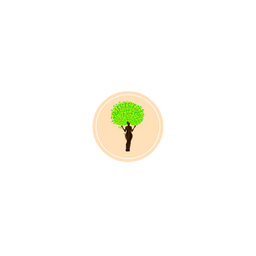For centuries, African cultures have relied on the healing properties of natural remedies derived from plants and herbs. These African herbal remedies, passed down through generations, offer a holistic approach to wellness and have gained recognition worldwide for their remarkable effectiveness. From relieving common ailments to promoting overall health, exploring African herbal remedies can open a door to an ancient world of wellness. Let's delve into the captivating world of African herbal remedies.
Ancient Wisdom, Modern Solutions
Many African indigenous communities have long recognized the healing potential of plants that grow abundantly within their surroundings. Passed down through oral traditions and shared across generations, African herbal remedies encapsulate ancient wisdom and offer modern-day solutions for various health concerns.
These remedies are steeped in cultural significance, with each plant holding a unique place in the community's history and traditions. Furthermore, many African herbal remedies have gained recognition beyond their local communities, attracting the attention of researchers and scientists globally.
The Power of Natural Ingredients
African herbal remedies are predominantly plant-based, utilizing the potent healing properties found in various herbs, roots, leaves, and bark. These ingredients are renowned for their ability to address a wide range of health issues without the harsh side effects associated with synthetic medications.
One notable example is the use of herbal teas in African herbal medicine. From calming chamomile to invigorating rooibos, these herbal infusions not only awaken the senses but also offer numerous health benefits such as improved digestion, enhanced immune function, and relaxation.
Key Benefits of African Herbal Remedies
Exploring African herbal remedies can be a transformative journey towards holistic well-being. Here are some key benefits that these remedies offer:
1. Natural Healing
African herbal remedies prioritize natural healing by harnessing the therapeutic properties of plants. These remedies work harmoniously with the body, encouraging its innate ability to heal itself.
2. Holistic Approach
African herbal remedies recognize the interconnectedness of the mind, body, and spirit. Rather than merely targeting symptoms, these remedies address underlying imbalances to promote overall wellness.
3. Improved Immunity
Many African herbal remedies possess powerful immune-boosting properties. Plants such as African ginger and moringa are known for their ability to strengthen the body's defense mechanisms, helping to ward off infections and diseases.
4. Stress Relief
African herbal remedies offer natural stress relief by incorporating calming ingredients like lavender, ashwagandha, and African marigold. These remedies help regulate stress hormones and promote a sense of calm and relaxation.
Exploring the Wonders of African Herbal Remedies
Africa's diverse range of ecosystems provides an abundance of medicinal plants, each with its own unique healing properties. Here are a few African herbal remedies that have gained global recognition:
Moringa
Known as the "Miracle Tree," moringa is hailed for its exceptional nutritional content. It is packed with vitamins, minerals, and antioxidants, making it a powerful immune booster and energy enhancer.
Baobab
The mighty baobab tree is a symbol of African vitality and strength. Its fruit is rich in vitamin C, fiber, and other essential nutrients. Baobab has been used to treat digestive disorders and promote healthy skin.
Rooibos
Originating from the Cedarberg region in South Africa, rooibos tea is cherished for its rich flavor and numerous health benefits. It is known for its antioxidant properties, promoting healthy skin, and supporting heart health.
Devil's Claw
Native to the Kalahari Desert, devil's claw has been used by African tribes as a natural remedy for arthritis, digestive issues, and inflammation. It also exhibits analgesic properties, making it effective in managing pain.
Embracing African Herbal Remedies in Your Daily Life
Integrating African herbal remedies into your daily routine can be a rewarding and transformative experience. Here are a few simple ways to incorporate the healing power of African herbs into your life:
1. Herbal Teas
Enjoy a soothing cup of herbal tea made from indigenous African plants. Whether it's rooibos, hibiscus, or lemongrass, these teas offer unique flavors and a myriad of health benefits.
2. Natural Skincare Products
Discover the therapeutic effects of African herbal remedies through natural skincare products. Look for products infused with baobab oil, shea butter, or African black soap to nourish and revitalize your skin.
3. Herbal Supplements
Consider adding herbal supplements to your daily wellness routine. African superfoods like moringa powder or baobab capsules can provide a nutritional boost and support overall health.
4. Aromatherapy
Experience the soothing scents of African essential oils such as lavender or frankincense. These oils can be used in diffusers, massage oils, or added to bathwater for relaxation and stress relief.
The Timeless Wisdom of African Herbal Remedies
African herbal remedies offer a treasure trove of ancient wisdom that has stood the test of time. As the world becomes increasingly aware of the importance of holistic health, these remedies are receiving well-deserved recognition.
By exploring African herbal remedies, we embrace a connection with nature and tap into the profound healing powers that have been cherished by African cultures for centuries.
Your Journey Begins Now
Are you ready to embark on a journey of wellness through the incredible world of African herbal remedies? Discover the power of these natural wonders and unlock the secrets to rejuvenation, vitality, and balance.
Start your exploration today and let the wisdom of African herbal remedies guide you towards a happier, healthier life.


